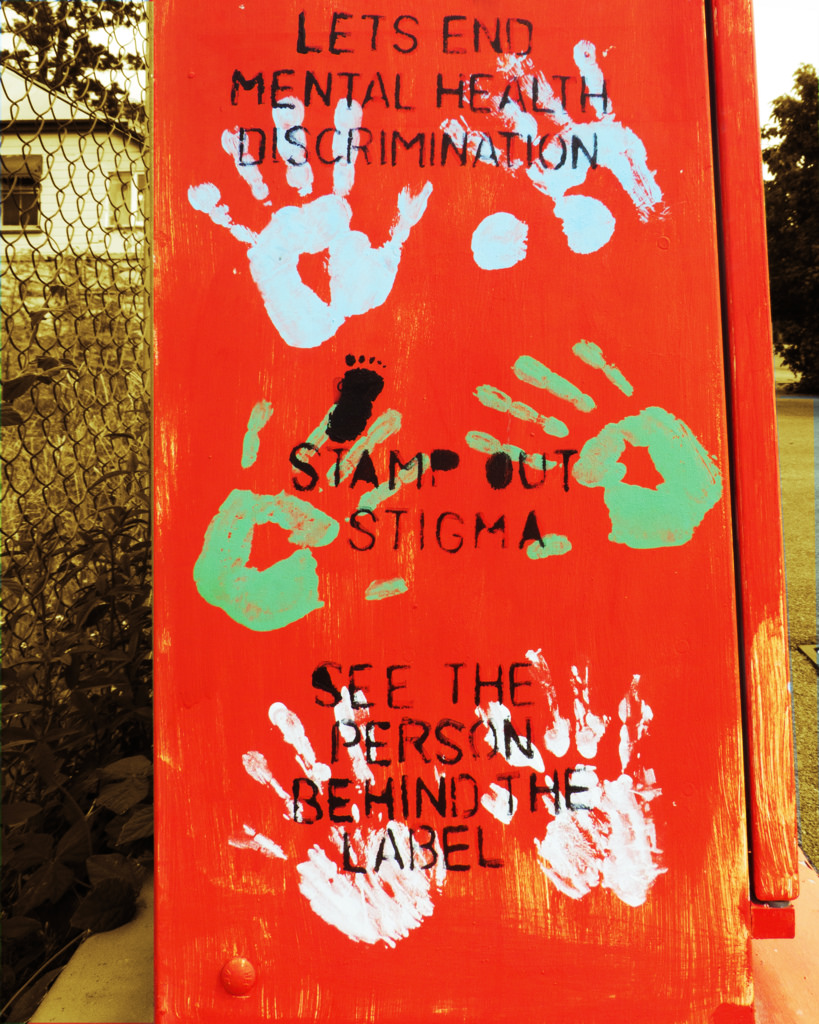“Mental health is the secret part of life”
December 9th, 2016 We talk about prosperity and physical health, but Omer Fayshal Pavel, 22, a Correspondent from Dhaka in Bangladesh, points out that mental health also affects the individual and society. He looks at factors that influence mental health and strategies to deal with problems.
We talk about prosperity and physical health, but Omer Fayshal Pavel, 22, a Correspondent from Dhaka in Bangladesh, points out that mental health also affects the individual and society. He looks at factors that influence mental health and strategies to deal with problems.
While people are running after prosperity and much concerned about health issues, a notable number of them are suffering from psychological problems like depression, anger, and hopelessness. They are suffering and in the end are losing the potentiality of life.
If we have good condition of health, that means we are free from diseases. But when it becomes a matter of emotion or the psychological state, then is it disorder or just a state which we will overcome soon?
If we look at the facts, then for sure it will make us think twice on this issue.
Globally, 47.5 million people are suffering from dementia and 7.7 million new cases are enrolled every year. Dementia is a condition where people suffer from losing memory and face problems in doing daily activities. Then we can look at depression, with 350 million people of all ages suffering from a severe state of depression globally. In this state they are not able to explore their own potentiality. We could also consider schizophrenia, bipolar affective disorder, intellectual disabilities and developmental disorders including autism, which have an impact on this state. According to the World Health Organization (WHO) the number of suicides due to depression or other psychological disorders is more than 800000 a year, making suicide the second largest cause of death in people ages 15 to 29 globally.
To discuss these issues, professionals use the term ‘mental health’. When we are very concerned about our physical health, we are not dealing with this parallel side of health. WHO states mental health this way: “Mental health is defined as a state of well-being in which every individual realises his or her own potential, can cope with the normal stresses of life, can work productively and fruitfully, and is able to make a contribution to her or his community.”
When one’s mental health is unstable, then the term used is mental illness, which affects thinking, behaviour and mood as well. Now is the time mental health is going to be one of the most focused health and social issues, as one out of four teenagers is suffering from mental disorders and losing the meaning of life.
There are four factors that influence mental health: sociological, economic, genetic and environmental factors.
Let’s think on the first factor, which is very crucial to this issue. Normally, children develop in a society and develop their mental condition and maturity by achieving the pattern of society. An unstable society can’t produce a stable mental condition. Society does matter in developing mental health.
Economic factors also have a major role on the mental health of people. An insufficient financial state can lead to mental instability, followed by disorders.
Sometime genetic factors also lead to mental disorders. Different disease like depression, bipolar disorder, schizophrenia and autism can be examples.
The environment has also an influence on mental health. For example, different chemical factors , including some drugs, can also induce mental disorders.
Normally, by stable mental health we understand there will be indicators like developed physical health and life expectancy, increased skills, better educational achievement, avoiding health risks like smoking and alcohol consumption, avoiding suicide, improved productivity, reduced anti-social behavior, avoiding criminality, and obviously significant levels of social communication and participation.
On the other hand, mental illness can result in losing interest in leading daily life, eating or sleeping too much or too little, pulling one’s self away from community and activities, feeling numb or being careless to others, experiencing unexplained pains, feeling helpless or losing hope, smoking, drinking, or using drugs more than usual, forgetfulness, or acting angry, upset, worried, or scared, yelling or misbehaving with others, severe mood swings, hearing voices or believing things that are not real, thinking of harming yourself or attempting suicide.
As mental illness is one of the most pressing issues, we need to know how to overcome this situation. In developing mental health, the most important step is support. Listen to the person suffering from any mental disorder, especially depression, which is most predominant. Be connected with the person, talk to the person with positivity and help to overcome the situation. Often it is recorded that discussing the problem may reduce the mental pressure on the victim. Also, look for professional help if it is needed.
Photo credit: Leonard J Matthews oppression via photopin (license)
…………………………………………………………………………………………………………………
About me: I am a youth from Bangladesh, a country which is densely populated. The overpopulation has created issues that reduce the environmental and health status. As a result, different unexpected health challenges are arriving. My ambition is to overcome these problems by making a network of youths and working as public health professional in the future.
I like to visit different places with different traditions and taste different foods. Right now I am a student of Pharmaceutical science and a health columnist in national news papers.
…………………………………………………………………………………………………………………
Opinions expressed in this article are those of the author and do not necessarily represent the views of the Commonwealth Youth Programme. Articles are published in a spirit of dialogue, respect and understanding. If you disagree, why not submit a response?
To learn more about becoming a Commonwealth Correspondent please visit: http://www.yourcommonwealth.org/submit-articles/
…………………………………………………………………………………………………………………






